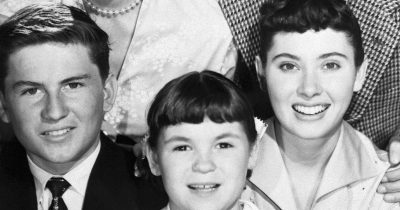
After years at the bedside of dying patients, a hospice doctor noticed a striking pattern – when the end comes, people don’t cling to fear. In its place come final words that are quiet, powerful, and often shockingly unexpected.
While death is one of the most feared and least discussed parts of life, it is a moment of deep psychological transformation for many. Dr. Christopher Kerr, a palliative care physician with over two decades of experience at Hospice & Palliative Care Buffalo, has studied more than 1,500 end-of-life events. His findings challenge our traditional understanding of dying – not as a void, but as a “unique vantage point” that “changes one’s perspective and perception.”
“It naturally draws you inward. There’s reflection, and often people focus on the best points of having lived and having mattered. And that’s usually our relationships,” said Dr. Kerr, who heads the research team on dreams and visions at the end of life.
Emotional closure
Contrary to what many expect, the final days of life are not always filled with fear.
“We’ve all been harmed in one way or another for having lived, and we seem to get put back together through these experiences,” he told the Sun. “And so, the life you live gets validated, and inversely, the fear of death seems to lessen.”
Kerr’s research shows that most dying patients experience powerful dreams or visions – sometimes involving meetings with long-lost loved ones or recalling significant life events – that provide emotional closure.
‘Profound inner experiences’
“There tends to be these very profound inner experiences that either come out through conversation or through dreams,” Dr. Kerr told Hospice News, explaining that these dreams are not hallucinations caused by medication or illness. “As people draw closer to death, there’s a dramatic increase in the frequency of these events. They’re recalled with clarity. They’re 100% distinct from confusional states.”
Yet not every experience is calming. Some patients are confronted by disturbing visions –often tied to unresolved guilt or trauma.
“But it’s these dreams that are often the most transformational or meaningful,” the physician said.
Regretful addict
Dr. Kerr recounted the case of a man in his 40s – an addict who spent much of his life in prison – who was dying of cancer.
“He was dreaming, he was joking, he was very jovial…and then he starts crying because he’s having these horrible dreams [that] he’s being stabbed by all the people he’s hurt… and he breaks down,” Kerr said of the man’s final days. “But then when he comes out of it, he asked to see a daughter that he wants to express his love towards and apologise.
“And after that he died peacefully.”
Parental approval
Another case involved a mother who was plagued with guilt over her children’s involvement in crime.
“During her end-of-life, her parents came to her and told her what a good mother she was,” the expert told the Sun. He explains that patients who’ve endured “bad and painful things” don’t suppress these experiences at the end of life – instead, they confront and transform them in a “way that is very interesting.”

Veteran with PTSD
One of the most striking was the case of a WWII veteran who suffered from severe PTSD.
Kerr said that for decades, the man had been haunted by graphic memories from Normandy: “He came into our unit at the end of his life…he had such horrific experiences where he’s seeing body parts and bloody water and screams, and he couldn’t rest,” Kerr explained. “You can’t die unless you can sleep. It’s pretty hard to do because you just pass in sleep.”
At the end of his life, he finally slept and had “a great dream” about his discharge day – the happiest day of his life. In that dream, “presumably in Normandy,” a fellow soldier “who he didn’t know” told him, “No, we’re going to come get you.”
Soon after, the veteran passed away peacefully in his sleep.
“So that sense that he had abandoned people had gone full circle,” the doctor added.
Children and death
According to Kerr, children experience death differently – often because they don’t fully grasp its finality.
Instead of fear, many terminally ill children see comforting visions, like animals that assure them they’re “loved and not alone.”
“Children are creative and imaginative and can access that part of them,” Kerr said.
One young girl even imagined a full scene of her favorite things gently surrounding her hospital bed – a final moment filled with wonder, not fear.
“She created a castle for herself…there was a swimming pool, the animals were returned, there’s a piano, there was a window with warm light coming through,” said the author of “Death is But a Dream.”
He added: “Just because you are dying doesn’t mean you stop living. You do some intense living in that latter period.”
Dr. Christopher Kerr’s research presents a profound and hopeful picture of the dying process. Whether through reconciling past regrets or reliving treasured memories, many people find peace in their final days. Far from the cold silence we associate with death, these last moments can be filled with meaning, transformation, and even joy.
Please let us know what you think of this story and then share it with your friends so we can hear from them!
READ MORE
- End-of-life nurse reveals top 3 ‘deathbed regrets’ she always hears
- Hospice nurse reveals three signs people show 24 hours before dying




